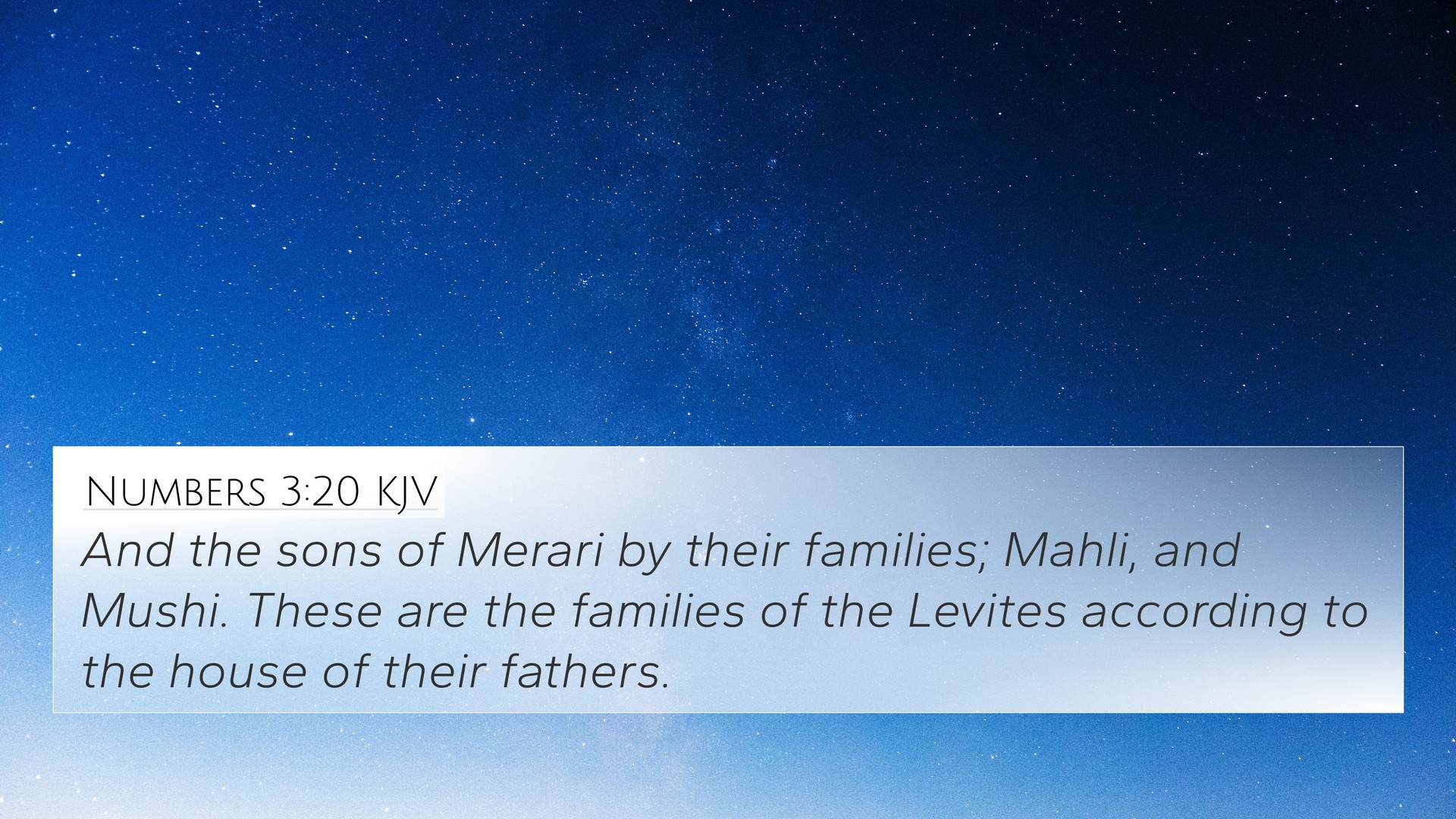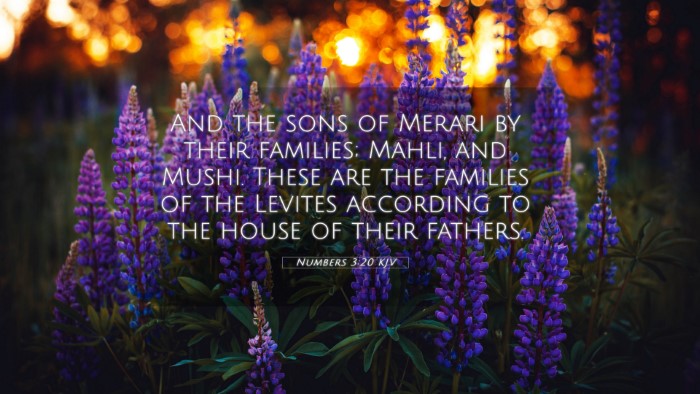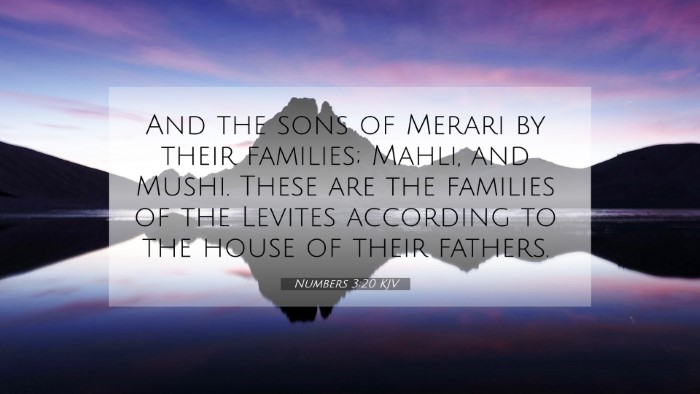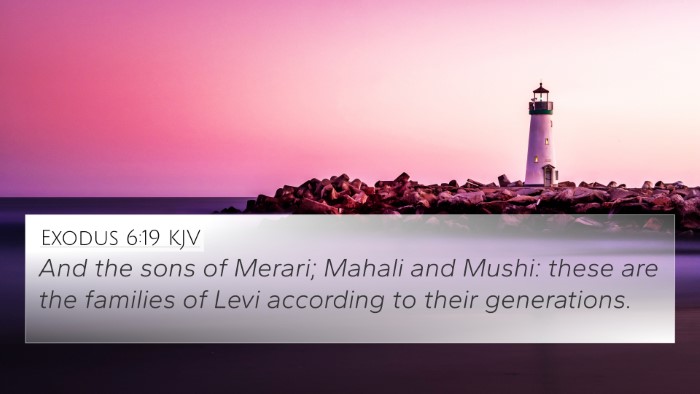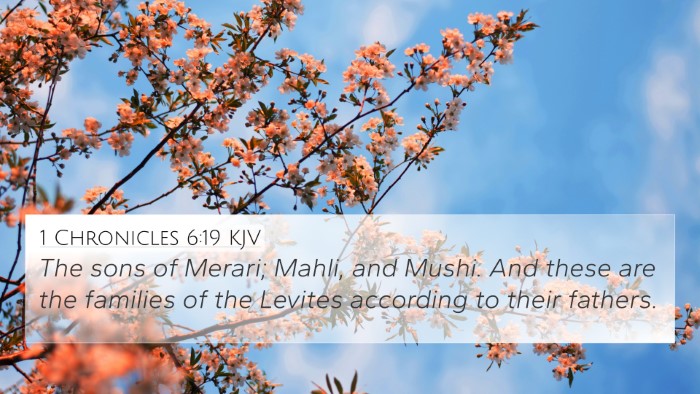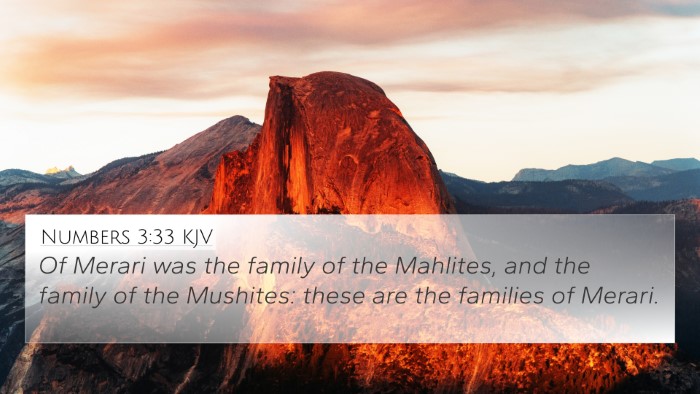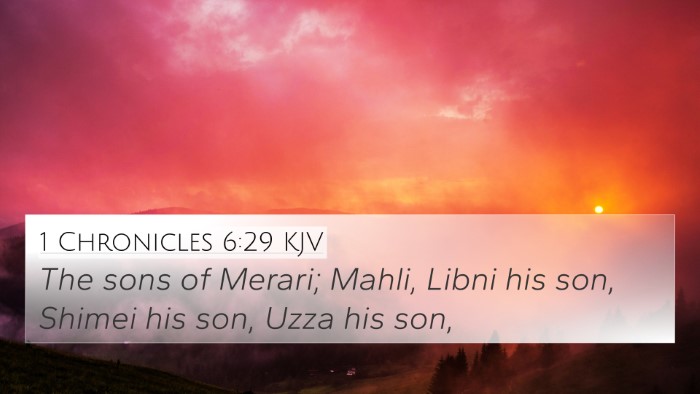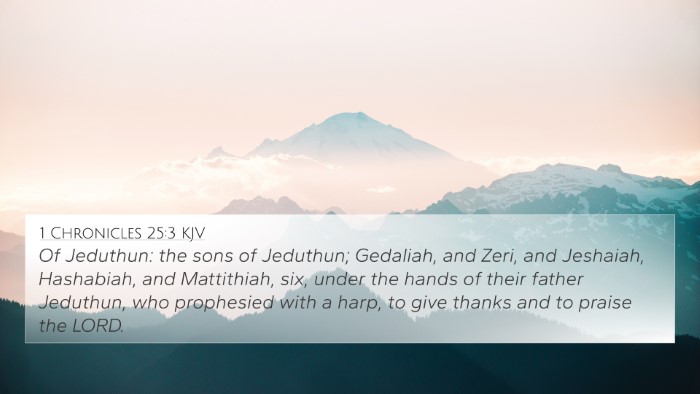Understanding Numbers 3:20
Numbers 3:20 states:
"And the sons of Merari by their families; Mahli and Mushi: these are the families of the Merarites."
Summary of Interpretation
This verse introduces the families of the Merarites, one of the Levitical clans tasked with specific duties in the service of the sanctuary. The mention of Mahli and Mushi highlights the division of responsibilities among the Levites. The implications of this passage extend to understanding the organization and roles within the Israelite community.
Insights from Commentators
-
Matthew Henry:
Henry emphasizes the importance of order within the Levites. He notes that every tribe and family had a distinct role, which reflects God’s desire for an orderly worship in the Tabernacle. Henry also points out that the family lineage serves to show God's faithfulness in preserving the priesthood.
-
Albert Barnes:
Barnes highlights the significance of the Merarites and how their duties involved the carrying and care of the heavier parts of the Tabernacle, such as the boards and pillars. He underscores that their work was crucial for the proper functioning of Israel’s worship practices.
-
Adam Clarke:
Clarke discusses the genealogical aspect provided in this verse. He underlines that this lineage not only establishes the roles of Merari’s descendants but also serves as a reminder of the heritage and tradition of service to God within the Israelite community.
Thematic Connections
The structure within the Levitical family can be linked to various thematic elements throughout Scripture, which emphasize community order, service, and the division of labor in worship. Below are notable Bible verse connections that reflect similar themes:
- Exodus 6:20: This verse outlines the parentage of the Levites, reinforcing the family backgrounds and their God-given responsibilities.
- Numbers 1:50-53: Details the roles assigned to the Levites in relation to the Tabernacle.
- 1 Chronicles 23:6-11: Further elaborates on the divisions within the Levites, emphasizing the continuation of their service throughout generations.
- Psalm 84:10: Expresses the beauty and significance of serving in the house of God, linking to the roles of the Levites.
- Hebrews 7:14: Refers to Jesus' lineage and how the priesthood changed, making connections to the Levitical priesthood.
- Galatians 3:28: While not directly related, this verse emphasizes the unity of believers, showcasing a broader understanding of service.
- 1 Peter 2:9: Discusses the priesthood of all believers, drawing parallels to the Levitical roles outlined in Numbers.
Cross-Referencing Biblical Texts
Cross-referencing Bible verses, such as those connecting Numbers 3:20 with related passages helps in deepening our understanding of Biblical themes:
- The Levitical priesthood is foundational for understanding God’s plan for worship (see Leviticus 8).
- The importance of order in worship and community life is echoed throughout the Old Testament.
- Connections between Old Testament ceremonies and New Testament teachings show the continuity of God's message (see Hebrews 9).
Tools for Bible Cross-Referencing
To deepen understanding, believers can utilize various tools for Bible cross-referencing:
- Bible Concordances: These resources help locate words and their occurrences throughout Scripture.
- Bible Cross-Reference Guides: These provide commentary and notes on related verses.
- Digital Bible Study Tools: Online resources and apps can enhance the ability to search and reference different texts quickly.
Conclusion
Numbers 3:20 serves as a reminder of God’s divine order and the vital roles designated within the Levitical community. Through the study and cross-referencing of these texts, one can gain deeper insight into the Scripture’s overarching themes of service, worship, and the continuation of God's covenant. Understanding the connections between Bible verses enriches the reader's journey in faith, leading to greater clarity in the message of God’s Word.
